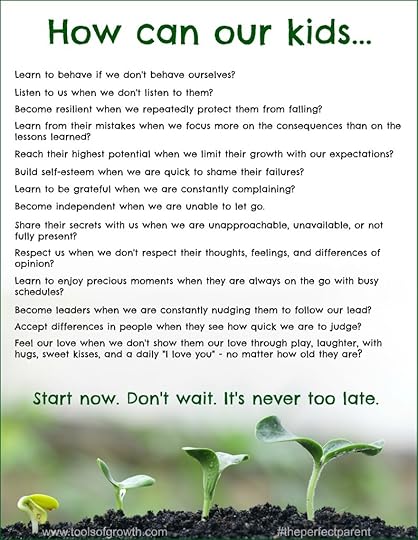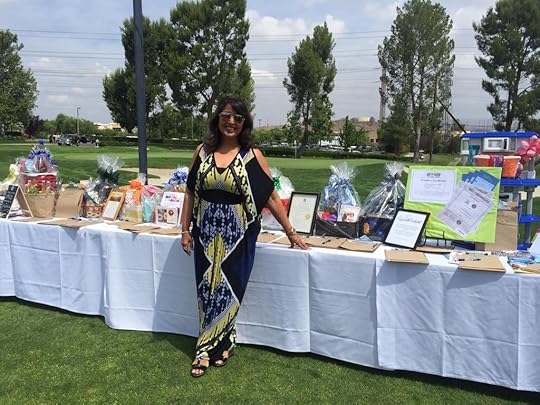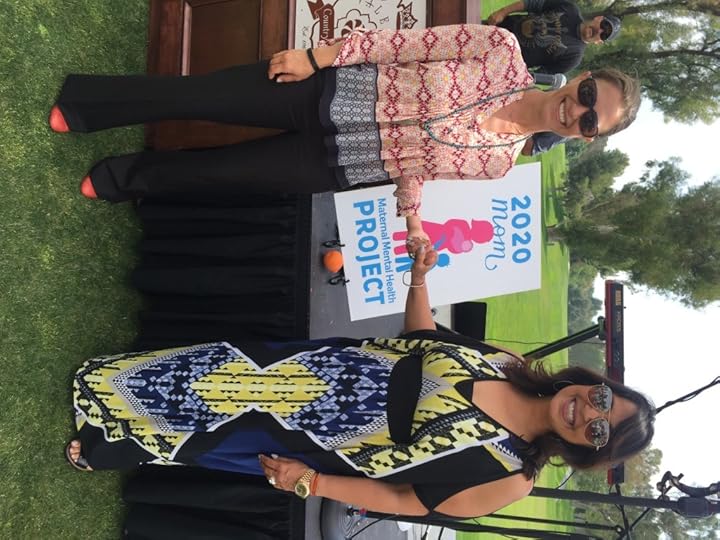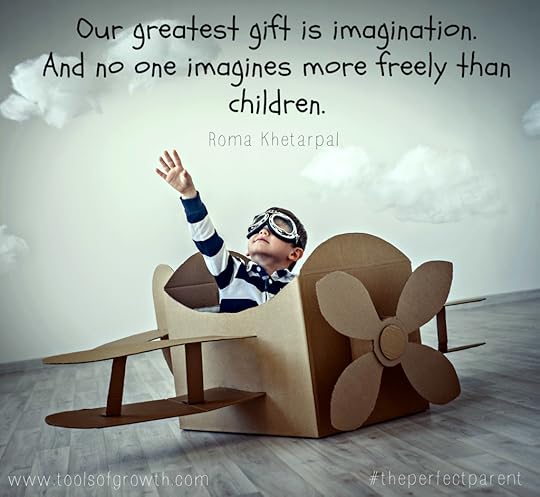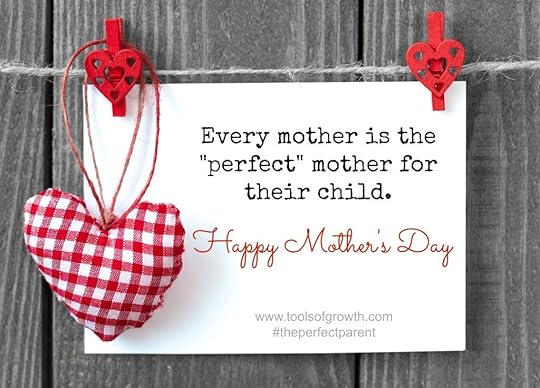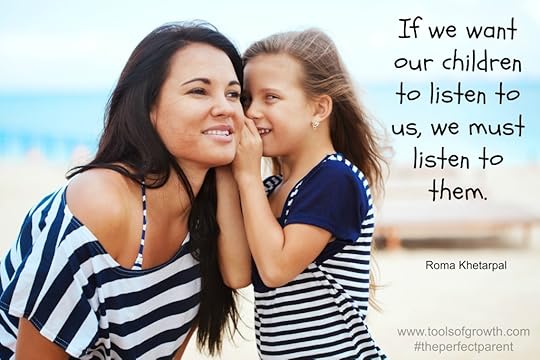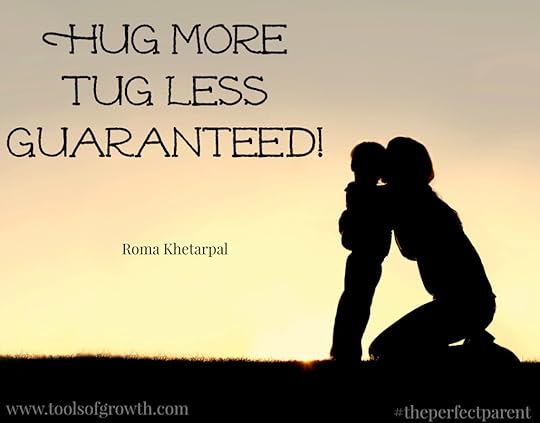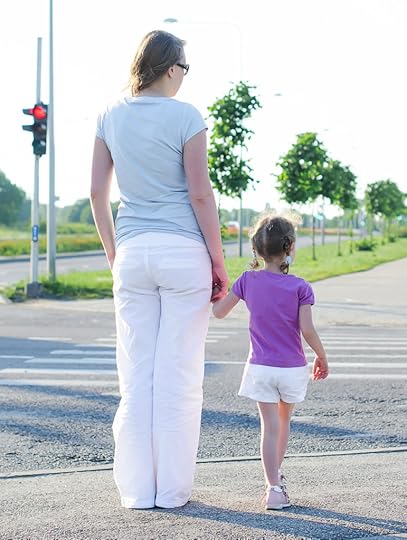Roma Khetarpal's Blog, page 25
June 8, 2015
Preparing Our Children to Face Rejection, or Failure
Guest post by Kalpana Patel
As a good parent or teacher, we should teach our children that failure is an opportunity for improvement and growth, rather than a blockade deterring us from our greatest potential
- Dr Asa Don Brown
I still remember when my son did not get into the college he had desperately wanted to get into. It was hard to see him going through that phase of life where he was facing rejection, and I thought that we, as parents, should not only help our children deal with failure but also prepare them for failures in life.
It’s not easy trying to get a teen to “accept what the universe is putting you through.” I remember the conversations we had about how “all that happens, happens for the best.” Well, it eventually did! My son worked harder, became more focused, and improved his study habits. The following year, he applied to the college again and was accepted. If he had not experienced that failure, he might not have become so much more serious about his work or would have taken success for granted.
As parents, we always want to see our children succeed at everything. But isn’t failure a part of life? Are we teaching our children how to handle rejection and failure? What happens to them without that lesson, or if they don’t have supportive parents? They learn to deal with failure in other ways, some of which could be harmful. Our children may face failure or rejection early in life or later. Either way, if they have the right attitude, they will be able to overcome the situation without losing hope or becoming depressed.
What are some of the ways we can help children learn to deal with failure at an early age?
1. Teach them that it’s ok not to win every time. This begins in school, when they start to compete in games. They have to understand that no one wins every time. Of course, they need to try their best at whatever they do. But they also need to learn to take failures in their stride.
2. Teach them to take ownership of their failures. Children often like to blame others for their shortcomings. But owning up to a failure will ultimately lead to success. Blaming others will not get them anywhere.
3. Get them to talk about how the failure makes them feel. It is important that your child communicates his or her feelings. That way we know how much they hurt, and we can console them and assure them it’s ok to lose sometime. Sharing their feelings about a failure will also prepare them to communicate about other things in life, rather than letting emotions build up inside.
4. Teach them that failures can be stepping-stones to success, if they are able to sit down and analyze the failure and think about how to overcome it the next time.
5. Teach them to trust the process. When children don’t do well on a test, don’t get into a desired college, or don’t land that perfect job, they need to understand that it’s ok. There’s something they can learn from the experience, and they can utilize their feelings in a positive way toward a positive goal.
6. Most important, is how we, as parents, deal with failure. Let us be positive role models for our children. After all, they learn from what we do.
7. Don’t forget hugs! All of us need them – at any age! So whether your child is 6 or 16, don’t hold back. Remember, the more you give the more you get back. Wouldn’t you love it if you were going through a rough period and your kids came up on their own and gave you a giant hug?
Kalpana Patel is a certified life coach (ICF) and an eating psychology coach, certified at the Institute for the Psychology of Eating. Her main goal in her coaching practice is to help people to love themselves “now” as opposed to waiting to do that only when they “get there.” Getting there could mean different things for different people: Getting the perfect job, reaching the perfect weight, finding the perfect life partner. By loving themselves unconditionally, they are placing the key to their happiness in their own hands. She has a true passion for helping people cultivate unconditional love for themselves, and helping people to form healthy relationships with food.
Follow Kalpana on Facebook and LinkedIn.
The post Preparing Our Children to Face Rejection, or Failure appeared first on Tools of Growth.
June 1, 2015
How Can Our Kids…
Sometimes we all need a little reminder we can reflect back to you on those days when parenting gets tough. Click on the image, download and print.
The post How Can Our Kids… appeared first on Tools of Growth.
May 25, 2015
Spotlight on Maternal Mental Health and the 2020 Mom Project
Last weekend, I was invited to co-host an awareness and fundraising event for 2020 Moms, along with Kim Walls, CEO of Episential Skin Care Products. Under the beautiful Cali sun, with clouds stopping by, every now and then, to cool off the very mild warmth that one felt occasionally, it was truly perfect weather. The event was a super hit. There were 125 people in attendance, mostly Moms, with a sprinkle of Dads here and there.
I arrived about an hour before the event started—as I usually do—to connect with the setting, soak in the energy, and ground myself with a touch of gratitude for the opportunity. As I sat at the edge of the stage, facing the empty chairs, I couldn’t help but be in awe of how I got here. Less than three weeks before, I had never heard of 2020 Moms and here I am co-hosting their very first fundraising event in Santa Clarita!

Why had I not heard of them or for that matter why have you not heard of them—even though everyone’s heard of post-partum depression! I was quite surprised to learn that despite “postpartum depression” now being a mainstream issue, until two years ago there was no mainstream management plan for it, despite the surprising fact that one out of every seven Moms is affected by some form of maternal mental imbalance. I was also quite shocked to learn about the lack of awareness and education within the medical profession about this issue. Basically, before this movement began, Moms (and their families, consequently) that are affected by this, just went through their confusing and crippling emotions with NO help whatsoever! To my shock, I also learnt that it took an average of 17 asks before a Mom gets some guidance or help to manage postpartum depression.
One out of every seven Moms is affected by
some form of maternal mental imbalance.
It is no wonder that there was a dyer need for this organization! Founded just two years ago by Joy Burkhard, the 2020 Mom Project (“The Project”) is the campaign offshoot of the non-profit California Maternal Mental Health Collaborative.
How they are making a difference:
Raising awareness through education: through certified training programs and educating medical and hospital professionals about maternal mental illnesses.
Educating Moms with information on symptoms and triggers to help them identify the issue and seek help sooner than later.
Connecting with the community – spotlighting the issue, encouraging Moms to come forward and share their stories.
The month of May is International Maternal Mental Health Awareness month and we are joining the 2020 Mom Project campaign in an urgent national call to action that sets forth an aggressive new path for solving what some have called one of the biggest public health concerns of our time: the silent maternal mental health crisis which impacts up to 20% of expecting and new moms.
Lets support them and join the conversation by simply sharing this blog post (click SHARE at the bottom of this page), “Like” them on FB, and post a tweet of your support. Click the tweet below and you will automatically be taken to Twitter. (Must have a Twitter account.)
We truly believe that this is a much needed national call to action that we can all contribute to!
#MomsMatter
The post Spotlight on Maternal Mental Health and the 2020 Mom Project appeared first on Tools of Growth.
May 18, 2015
Dissing Your Other Half
Do you vent to your kids on days when you’re angry at your spouse– be it a difference in opinion or lack of respect or domestic squabble? Sure, who hasn’t.
There is no winning in this!
While this helps us get things off of our chest, it gives kids the in to future “divide and conquer”. It breeds disrespect, imprinting impressionable minds with the wrong impression. It puts them in the midst of confusing emotions, doubts and fears.
While we seem to hug, kiss, make up and move on the next day, we leave behind, in our kids minds, negative feelings that will show up sooner or later. Consequences that we will surely have to clean up at some point.
Let’s be bold the next time we are tempted to diss our other half. Let’s not make excuses for their bad behavior but actually build them up to the kids by saying:
“I know Dad was wrong when he said that. He needs some time to figure it out. This will pass and we love each other regardless.”
Or
“I know mom blew a fuse but it happens to all of us. I’m giving her some quite time. We’ll figure it out because we love each other regardless.”
Can you be bold and courageous like that? Do it a few times and feel the high of the benefits. Can you be so bold as to flip the coin and take the lead to calm and resolve?
The post Dissing Your Other Half appeared first on Tools of Growth.
May 11, 2015
Imagination
Imagination.
It’s something we all have in us and yet as we get older we sometimes forget that it’s okay to use it.
Let your children imagine uninterrupted.
Show them your wonder and awe with:
Wow, that’s really cool.
That’s genius.
Love that idea.
Can you imagine encouraging like this?
Then you have just helped create TOMORROW.
The post Imagination appeared first on Tools of Growth.
May 10, 2015
Happy Mother’s Day
Once you are a Mom, you are always a Mom. It doesn’t go away, no matter when your children become adults, leave home, move across the country (or the world), marry, or have children of their own. Motherhood is a badge you carry the rest of your life. While we celebrate all Mothers on Mother’s Day, we know that one day can’t possibly begin to encompass all that having a mother… and being a mother… truly means.
“If you bungle raising your children, I don’t think whatever else you do well matters very much.” – Jacqueline Kennedy Onassis
Grown doesn’t mean nothing to a mother. A child is a child. They get bigger, older, but grown? What’s that suppose to mean? In my heart it don’t mean a thing. – Toni Morrison
A mother is one to whom you hurry when you are troubled. – Emily Dickinson
I just want my kids to love who they are, have happy lives and find something they want to do and make peace with that. Your job as a parent is to give your kids not only the instincts and talents to survive, but help them enjoy their lives. – Susan Sarandon
Making the decision to have a child is momentous. It is to decide forever to have your heart go walking around outside your body. – Elizabeth Stone
Being a mother is learning about strengths you didn’t know you had, and dealing with fears you didn’t know existed. – Linda Wooten
There will be so many times you feel like you’ve failed, but in the eyes, heart and mind of your child you are super mom. – Stephanie Precourt
Motherhood: All love begins and ends there. – Robert Browning
To describe my mother would be to write about a hurricane in its perfect power. Or the climbing, falling colors of a rainbow. – Maya Angelou
We get no awards for parenthood, even when we do it well. It’s not something we get paid for. It is a voluntary position, and volunteering for a lifetime of anything deserves a standing ovation. But to volunteer for a lifetime of responsibility for raising another human being… Now that is worth honoring again and again and again. – Roma Khetarpal
The post Happy Mother’s Day appeared first on Tools of Growth.
May 4, 2015
Mindful Listening
Understanding the difference between hearing and listening was a huge milestone for me personally. I’ve come to understand that while hearing is merely the perception of sound, listening means paying careful attention to both the sound and the source. We have to tune in to the feelings behind the words. As I praticed doing that with my children, my husband, my parents, and my coworkers, I realized how much sharper I was becoming as a mom, a wife, a daughter, and a leader. In fact, listening built not just my children’s self-confidence but also my own.
Striving to listen also enhances self-control, and self-control teaches us patience. Being a good listener has definitely made me more patient. And patience has a way of putting us back in the driver’s seat – not in control, because we really don’t want to “control” our kids, but definitely in the lead, when and as needed.
When your child tells you a story about something that happened in school or with a friend, start tuning in with your senses, one by one. First, make eye contact. Then focus on your ears, and start listening word for word. If you notice your mind drifting, slowly inhale and watch how that helps you tune in again. Taking a slow breath helps you tune back in; you will feel your mind opening and expanding, too – a huge help for parents during a kid crisis. This mindful listening helps us be honorable, approachable, and sensible all at once! If you feel the urge to say something, use neutral sounds and nondirectional words like Hmmm, Uh-huh, or Really – whatever comes to you naturally. Give you opinion or comments only if it is truly necessary, especially as children get older and are more able to work things out for themselves.
Remember, our ears are not just organs of hearing but also of balance and equilibrium. Mindfully listening to our kids helps us balance their feelings and their thoughts. Mind you, listening does not always have to mean agreeing. It simply means giving them an opportunity to say what’s on their mind, without interrupting.
And if we want our children to listen to us, we must listen to them.
If you enjoyed this excerpt from The “Perfect” Parent, you can pick up a copy on Amazon.
The post Mindful Listening appeared first on Tools of Growth.
April 27, 2015
The Power of a Hug
Think about the last time you received a great big hug from someone. It might have been your spouse, your parent, or maybe your child? How did it make you feel? Warm? Safe? Loved?
We often hear stories of premature babies who have grown and flourished while connecting skin-to-skin with their mothers. Many children who have emotional issues benefit greatly with hug therapy. When depression strikes, or you have that sense of being overwhelmed, a hug can raise your oxytocin levels, the hormone that calms you down and can even help in healing. Why, then, don’t we make it a point to hug each other more if we know all the amazing benefits?
The word “hug” comes from an old Norse word hugga meaning to soothe or console. It became a term of affectionate embrace sometime around 1650.
As parents, we cuddle our babies close on instinct. As our kids get older, we hug them when we are proud or when they are hurt. At some point, the hugging slows down – usually around the time they start to recognize their independence and we hear… “Awwww Mom, I don’t need a hug. It’s embarrassing.” Oh yes, that is precisely when they need those hugs the most.
Our society today seems to have moved away from the hug as a socially acceptable form of greeting. Old friends or family might hug, but we’ve also been told to respect boundaries and keep distance lest people get offended. Teachers are told not to hug their students, coaches are told not to hug their athletes. We’ve become fearful of anyone taking that “hug” the wrong way when in reality, a hug can be just a hug. It shows our affection for someone, shows that we care about them.
The cultural aspects of hugs also come into play. Europeans tend to hug each other more than Americans. They can touch each other up to 100 times in an hour, while Americans only touch each other 2 – 3 times.
A hug is like a boomerang – you get it back right away.
– Bil Keene
According to researchers at Carnegie Mellon University, hugs help protect against stress and infection. They studied the effects of hugging on the immune system and found that those under more stress were less likely to fight off colds. Since hugging is a sign of having more intimate and close relationships with other people, they deducted that having those closer and more satisfying relationships were beneficial to your overall health.
If a hug can boost your immunity, build your self-esteem and make you feel better overall, we should all make a point of hugging those we care about even more. When having a disagreement with a loved-one or discussing a serious topic, always top it off with a heart-to-heart hug. Hugs fill in the gaps and reach where words can’t.
Read more about the benefits of hugging:
I Want to Hold Your Hand: Physical Contact Contributes to Health & Wellness
The Shocking Truth Behind Hugs
The post The Power of a Hug appeared first on Tools of Growth.
April 20, 2015
Helicopter Parenting: Are You Hovering or Just Involved?
A mom in one of my classes said, “My sister often calls me a ‘helicopter’ parent, and I don’t like it. But I do consider myself a very involved mom. How do you draw that fine line between the two?”
There are so many tasks that we do for our children and with our children. Each of these tasks changes over time, however. We start by doing things for them, then do things with them, then watch while they do things themselves. Eventually we let go and allow them to do things independently. Sure there are going to be gray areas between these stages of growth and independence. With some children the transitions are quick. With others, not so much. Similarly, some transitions are easy for us as parents and some not. And that’s okay! We all know that some habits—especially those things that we have been doing awhile for our kids—take a little more effort to give up. But we can start by being aware of what we are doing. Here’s how you can begin that discovery process.
Grab a pen and paper or your mobile device and answer the following three basic but interrelated questions, which will help you identify where you are “involved” and where you might be “hovering” and should step back. Remember, honesty is key. Trust your gut on the tough answers:
What am I currently doing for my children that they can or should be able to do for themselves?
* At home
* With schoolwork
* With extracurricular activities
* With social activities
Am I hovering or actually involved?
Go over each of the above answers and decide whether your participation comes from actually being “involved” or from being “concerned” that either your children can’t do this task themselves or that you would rather do it than pick a battle over it. Mark an “I” next to the “involved” answers and an “H” next to “concerned.”
Am I willing to give up the concerned activities and be okay with it?
Go over your “H” answers, and ask yourself if you are willing to give up these activities and allow your child some space to grow. (Reminder: Be honest with yourself and trust your gut.) If the answer is “No,” and you actually believe that your kids can handle themselves with this situation, then it is surely time for you to take a step back and to reconsider your hovering.
Which of the “H” activities repetitively cause emotional drama and conflict?
These are the situations where you have definitely outgrown your involvement, and they should be up for discussion.
The simple truth is that we all also know when we are hovering over our children. The above checklist will help you identify any gray areas. Then it’s up to us to act on what’s in our kids’ best interest—despite how we feel about it.
Now that you have more clarity on specific issues, here are a few evergreen tips that could reassure you that you are moving in the right direction as well as help you through this transition, build positive communication habits, and nurture good relationships with your kids!
Reach out:
To the Mom in my class, I would suggest you ask your sister what prompted her to say that you were a “helicopter” parent. Ask her for specific examples. Or ask a close friend, spouse, or partner. Parenting is such an emotional and involved undertaking that sometimes we can’t clearly see our own behavior. Be prepared to listen with an open mind and keep your ego in check. This is the heart of mindful parenting and will help you keep your eye on your larger goal of building that great relationship with your kids. We all know that being a “helicopter” parent works to everyone’s detriment—our kids’ and our own. It stunts our children’s growth and prevents them from being self-reliant and resilient. Don’t be surprised if one or more of the H’s on your list are pointed out here. Remember to keep an open mind.
Listen and be up for change:
Now that you have identified your “H’s,” listen to your children’s push-backs. I don’t mean merely hear them but actually listen. When we are hindering our kids’ growth, they will let us know—loud and clear. Our innate human nature guides us to be in-dependent—dependent upon ourselves. It is no different with our children. Their push-backs come from their wanting to start depending upon themselves. Isn’t that what we want for them, too? Keep that goal in mind, and really listen when your kids tell you that they can do something themselves. Listen carefully; let them complete their thoughts uninterrupted. Be open minded, open hearted, and up for change.
Trust your instincts:
Parenting is not about being in control but about slowly giving over the controls to your children. The more often we remind ourselves of that, the easier it will be to pass over the reins. This is our best effort to under-stand our children, to support them, instead of over-standing them.
The post Helicopter Parenting: Are You Hovering or Just Involved? appeared first on Tools of Growth.
April 17, 2015
NAPPA Award Winner
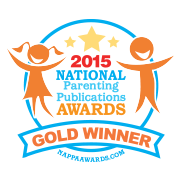
“Our awards program recognizes only top-quality products that are innovative, reliable and educational,” says Julie Kertes, General Manager of NAPPA, the National Parenting Publication Awards . “A product that bears the NAPPA seal is a product that parents can trust.”
Last week we received word that The “Perfect” Parent was honored with NAPPA Gold Award for Parenting Resources/Education. It was a humbling experience, considering the criteria NAPPA uses to award its Gold, Silver and Bronze honors. More than a seal of approval, this recognition signifies that NAPPA’s team of independent expert judges and family testers agreed this book was a standout among hundreds of books on similar topics from around the world.
Back in October 2014 when The “Perfect” Parent was published, I shared my journey in an article for the Santa Clarita Valley Signal. Since then I’ve had the opportunity to speak with hundreds of parents about the book’s message: using your inner perfection to connect with your kids.
I began this journey to authorship with no expectations, just a pure passion for advocating the importance of mindful parenting. I’ve put my heart and soul into this and have gotten back much more than I ever thought possible.
Today I want to extend my heartfelt gratitude to NAPPA and its judges for this incredible recognition. Your belief in our message, combined with the outpouring of support and positive feedback we’ve received from around the world, has warmed my heart.
With 25 years of experience in the parenting industry, NAPPA has always been relied on for its high standards in recommending the best products for parents, children, and families.
“We’re excited that The “Perfect” Parent is joining this year’s list of award-winning products,” says Kertes. “With NAPPA’s vote of confidence, it’s sure to be a welcome addition to anyone’s gift list.”
Look for the book with the new NAPPA Gold Award seal on the cover.
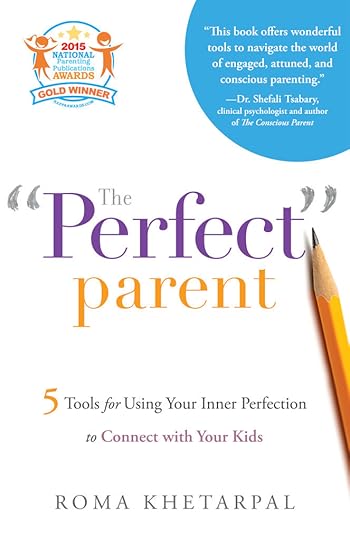
The post NAPPA Award Winner appeared first on Tools of Growth.


